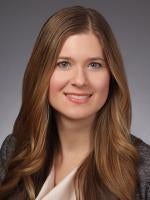Background
On February 16, 2024, the Alabama Supreme Court issued an opinion in the consolidated cases LePage et al., v. The Center for Reproductive Medicine et al. and Burdick-Aysenne et al., v. The Center for Reproductive Medicine et al., SC-2022-0579, in which the Court reversed a trial court’s dismissal of the plaintiffs’ civil wrongful-death claims and allowed the plaintiffs to move forward with a cause of action under the Alabama Wrongful Death of a Minor Act (the “Act”).[1] In so holding, the Alabama Supreme Court found that fertilized pre-embryos stored outside of the human body are “extrauterine children” and thus are included in the definition of “minor children” for purposes of the Act.
Originally passed in 1872, when in-vitro fertilization (“IVF”) would have been considered science fiction, the Act allows the parents or legal representatives of a “minor child” to sue defendants in civil court for monetary damages for “any wrongful act, omission, or negligence” that caused the minor child’s death.[2] However, the Act does not define “child” or “minor child”. Instead, the Court relied on prior cases that interpreted the term “minor child” to include an “unborn child . . . regardless of the child’s viability or stage of development”.[3] The Court then extended that meaning to include pre-embryos, reasoning that “extrauterine children” must be children based on the Court’s interpretation of the dictionary definition of the meaning of the word “child”. As a result, the Court has created a pathway for plaintiffs to sue IVF providers under civil law for the wrongful death of a minor child for having terminated pre-embryos in Alabama. This type of decision has been a goal for those in the fetal personhood movement.[4]
Scope of the Alabama Supreme Court Decision
This decision is rightfully garnering attention from the IVF provider community and the wider public because it may be the first time a court has conferred even limited “personhood” rights to a pre-embryo that has never entered a human body. Historically, pre-embryos have been treated as property and have been the subject of disputes in the family law context across the country.[5] While some state abortion bans prohibit termination from the point of fertilization, such bans tend to govern only the activity that occurs within a uterus or at least within the human body.[6] Instead, re-classifying pre-embryos as human children in all contexts could make IVF treatment using pre-embryos impossible. For example, common practices such as cryogenic freezing of pre-embryos for long-term storage or disposal of stored pre-embryos for medical research purposes could be considered child endangerment or even homicide.
However, the Alabama Supreme Court’s decision is limited to the interpretation of what constitutes a “minor child” under the Act. The majority did not interpret the meaning of what constitutes a human being or a child under any other Alabama law. Thus, for the moment, the immediate impact of this decision is on the application of a particular statute – the Alabama Wrongful Death of a Minor Act – in a particular context – the alleged negligent termination of pre-embryos by a rogue patient in a fertility clinic.
Further, the Court did not resolve the defendant clinics’ claims that the plaintiffs waived the possibility of raising wrongful death claims by signing contracts with the defendant clinics that contained provisions governing the destruction of pre-embryos that had remained frozen for longer than five years, donation of pre-embryos to medical research, or discarding “abnormal embryos” created through IVF. Instead, the Court acknowledged the need for further briefing on whether the plaintiffs had indeed contractually waived wrongful death claims or were otherwise equitably estopped from bringing them against the defendant clinics.
In the near term, the defendant clinics could ask the Alabama Supreme Court to reconsider its decision, or the defendant clinics could petition the United States Supreme Court for certiorari. In the long term, the defendant clinics and other IVF providers could petition the Alabama legislature for an amendment to the Act that would define “minor child” in a manner that would exclude pre-embryos created and stored outside of the human body.
Impact on IVF in Alabama
Though the Alabama Supreme Court confined its holding to Alabama’s Wrongful Death of a Minor Statute, the limited nature of the ruling is causing confusion and uncertainty around what is and what is not allowed under Alabama law. For example, some fertility providers in the state have announced that they will pause IVF treatments to evaluate the impact of the Court’s decision.[7]
The majority justices were careful not to extend this interpretation of the meaning of a “child” to the state’s criminal code or other portions of Alabama law. Some future action would be required to apply this ruling beyond Alabama’s wrongful death statute, such as future litigation. Alabama’s criminal homicide and assault laws, at least, apply only to “unborn children in utero”.[8] Nevertheless, IVF clinics and providers in Alabama may not wish to serve as test cases for a possible expansion of the Alabama Supreme Court’s logic in the present case to laws such as Alabama’s child abuse and neglect laws, where the term “child” is similarly underdefined.[9] Alabama already has used Alabama’s child abuse and neglect laws to prosecute pregnant women for alleged harms to “unborn” children under a theory of child endangerment.[10] Moreover, aggravated child abuse – which includes abuse on more than one occasion or abuse that causes “serious physical injury” – is a felony in Alabama.[11]
At present, the most significant difference between allowing a plaintiff in Alabama to sue an IVF provider for the destruction of pre-embryos as property based on a theory of negligence versus allowing a plaintiff to sue for the wrongful death of a human child is the availability of punitive damages – plaintiffs cannot recover punitive damages from a claim of negligence in Alabama.[12] Moreover, there are no caps on punitive damages in wrongful death cases in Alabama[13] and thus, awards for damages can be exponentially higher in a wrongful death case.
At the very least, IVF providers in Alabama who wish to continue to offer the full range of IVF services in Alabama should evaluate whether they have in place appropriate controls to ensure pre-embryos are safely and securely stored and should also review insurance policies to ensure adequate coverage, given the possibility of expanding liability. Cautious providers in Alabama may choose to limit services, such as limiting the number of retrievals, so that no more than one pre-embryo is created at a time or eliminate storage options for multiple pre-embryos such as cryogenic freezing or only freezing eggs with the possibility of crossing state lines when it is time for the creation of the embryo. Unfortunately for patients in need of assisted reproductive therapies, the chilling effect of the Alabama Supreme Court’s decision in this case may mean some providers in Alabama may stop providing IVF services altogether. It will be interesting to see how other states respond in light of this new decision from the Alabama Supreme Court.
ENDNOTES
[1] Ala. Code § 6-5-391 (“When the death of a minor child is caused by the wrongful act, omission, or negligence of any person, persons, or corporation, or the servants or agents of either, the father, or the mother as specified in Section 6-5-390, or, if the father and mother are both dead or if they decline to commence the action, or fail to do so, within six months from the death of the minor, the personal representative of the minor may commence an action.”).
[2] Id.
[3] Citing Mack v. Carmack, 79 So. 3d 597 (Ala. 2011).
[4] See, e.g., Bloomberg Law, Alabama Embryo Ruling Gives Boost to Fetal Personhood Movement (Feb. 21, 2024)
[5] See, e.g., Davis v. Davis, 842 S.W.2d 588, 594 (Tenn. 1992), on reh'g in part, No. 34, 1992 WL 341632 (Tenn. Nov. 23, 1992) (“One of the fundamental issues the inquiry poses is whether the preembryos in this case should be considered “persons” or “property” in the contemplation of the law. The Court of Appeals held, correctly, that they cannot be considered “persons” under Tennessee law[.]”
[6] See, e.g., Idaho Code § 18-604(1) (““Abortion” means the use of any means to intentionally terminate the clinically diagnosable pregnancy of a woman with knowledge that the termination by those means will, with reasonable likelihood, cause the death of the unborn child”) and Idaho Code § 18-604(11) (““Pregnant” and “pregnancy.” Each term shall mean the reproductive condition of having a developing fetus in the body and commences with fertilization.”).
[7] Associated Press, Alabama hospital puts pause on IVF in wake of ruling saying frozen embryos are children (Feb. 21, 2024).
[8] Ala. Code § 13A-6-1 (emphasis added).
[9] See Ala. Code § 26-14-1 (defining “child” as “[a] person under the age of 18 years.”)
[10] Hicks v. State, 153 So. 3d 53, 58 (Ala. 2014). Note also that the Alabama Supreme Court in the present case cited to Hicks – which held that the term “child” included an “unborn” child – in support of extending the definition of “unborn child” to include an “extrauterine child”.
[11] Ala. Code § 26-15-3.1.
[12] Lafarge N. Am., Inc. v. Nord, 86 So. 3d 326, 335 (Ala. 2011) (“Punitive damages cannot be awarded on a negligence claim[.]”)
[13] Ala. Code § 6-11-21(j); see also Springhill Hosps., Inc. v. Patricia Bilbrey W., No. SC-2022-0719 (Ala. Aug. 4, 2023).






 i
i


